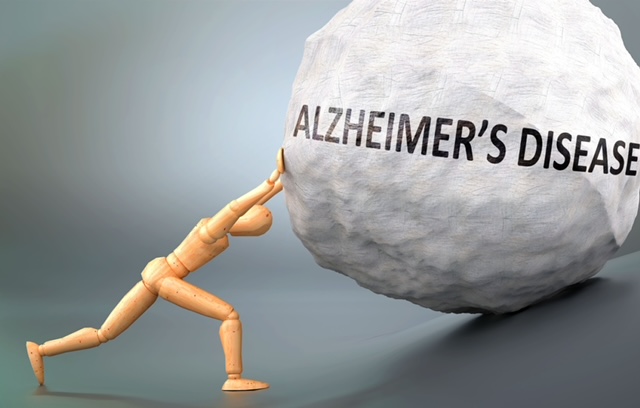Recent research suggests that there may be a simple way to help delay the severity of cognitive impairment associated with Alzheimer’s disease- something that most of us can do every night – get a good night’s sleep. In a groundbreaking study conducted by researchers from the University of California (UC) Berkeley, Stanford University, and UC Irvine, the case of a link between deep sleep and cognitive health has been made.
Deep Sleep and Alzheimer&’s: The Connection
Alzheimer’s disease, the most common form of dementia, has long been associated with the accumulation of amyloid-beta proteins in the brain. These proteins can disrupt cognitive function and are often used as a marker for Alzheimer’s disease. At the same time, previous research has shown an accumulation of amyloid-beta proteins deposited in the brains of people suffering from sleep disturbances. Thus, the nature of the relationship between sleep and Alzheimer’s has become the proverbial question of which comes first: the chicken or the egg; poor sleep is likely not only a symptom of Alzheimer’s but also a potential risk factor.
The Research Findings:
These researchers examined how deep sleep (non-rapid eye movement slow wave sleep) affects the cognitive function of patients with the markers of Alzheimer’s Disease. They found that individuals with brain changes associated with Alzheimer’s performed better on memory function tests when they had more deep sleep. This improvement was observed irrespective of factors such as education and physical activity, both factors known to contribute to help mitigate cognitive decline in older age. Most striking was that while Alzheimer patients with similarly high amounts of amyloid
deposition performed differently based on the amount of deep sleep they got, individuals with non-significant amyloid deposition did not perform differently based on the amount of deep sleep they got.
The Lifeline of Deep Sleep:
The researchers suggested that deep sleep can minimize the expression of Alzheimer’s Disease. This discovery is particularly exciting because it implies that we have the power to modify our future cognitive health through improved sleep, even as we age. This offers a glimmer of hope for individuals who might be at risk of Alzheimer’s or who have mild cognitive impairment who wish to prevent cognitive decline. Further study needs to be done to determine if increasing deep sleep can preserve cognitive dysfunction over the years despite increasing levels of amyloid deposition. This is plausible because the brain clears toxic waste products during sleep and the quality of the sleep may prove to be very important.
The lead author of the study, Zsofia Zavecz, gave hope to all at risk of or diagnosed with Alzheimer’s Disease, “with a certain level of brain pathology you’re not destined for cognitive symptoms or memory issues.”
Choosing Natural Sleep Over Sleeping Pills:
Many people turn to sleeping pills to improve their sleep. Recent research does show that people who improve their sleep with sleep aids do demonstrate lower levels of amyloid in the cerebral spinal fluid, the fluid surrounding and inside the brain, which cleanses the brain during sleep. However, sleeping pills lead to shallower sleep phases which may not result in the same degree of “waste-product clean-up” of the brain. Additionally, sleeping pills often cause unwanted side effects. Instead, experts recommend a few simple lifestyle changes to set the stage for a good night’s sleep. Cutting out late-day caffeine, not snacking after dinnertime, engaging in regular exercise, limiting screen time before bed, and taking a hot shower can all contribute to improving sleep quality.
Hope for the Future:
The link between deep sleep and the prevention of cognitive manifestations of Alzheimer’s Disease is a significant breakthrough in the ongoing battle against this devastating disease. While there’s still much to learn and more extensive research to conduct, the message is clear: a good night’s sleep is a powerful tool in preserving cognitive health. By making simple lifestyle changes, we can unlock the potential of deep sleep as a defense against Alzheimer’s disease. So, prioritize your sleep, and remember, it’s not just rest for the body; it’s nourishment for the brain.
How BeCareLink Can Help:
With our new BeCare Neuro Link mobile app, we can detect early signs of cognitive dysfunction. After seeking a diagnosis and exploring treatment options with your physician, you can pursue ways to modify your future cognitive health, including getting a good night’s sleep. The BeCare Neuro Link app can help you monitor your disease progression to guide you in making treatment changes when appropriate. With the numerous new medications being made available to patients, it is more important than ever to track your cognitive health.
